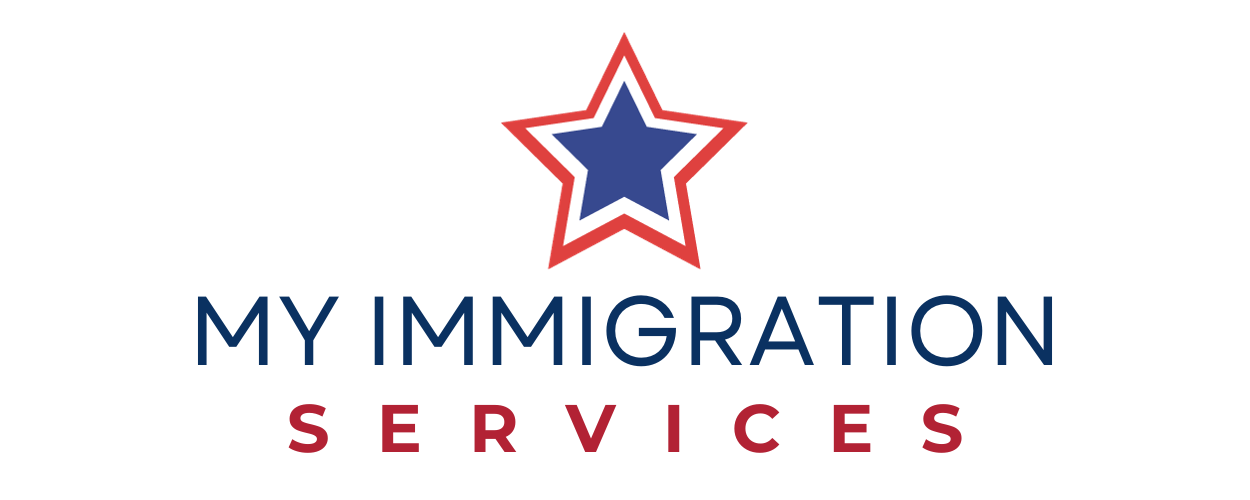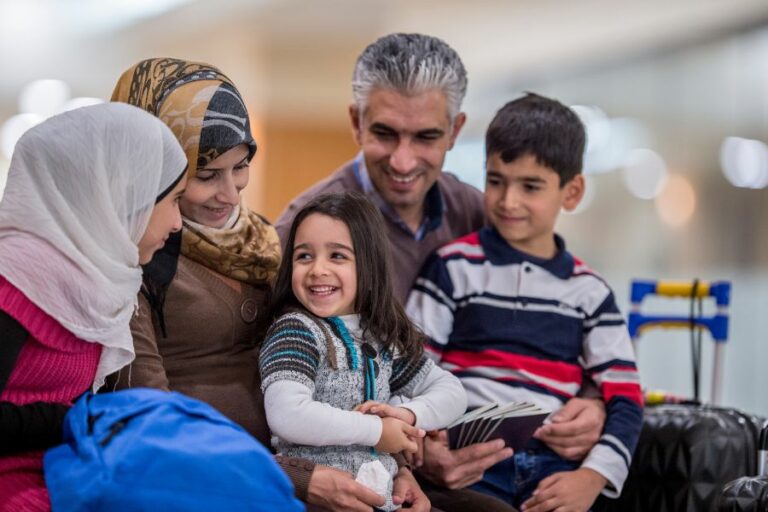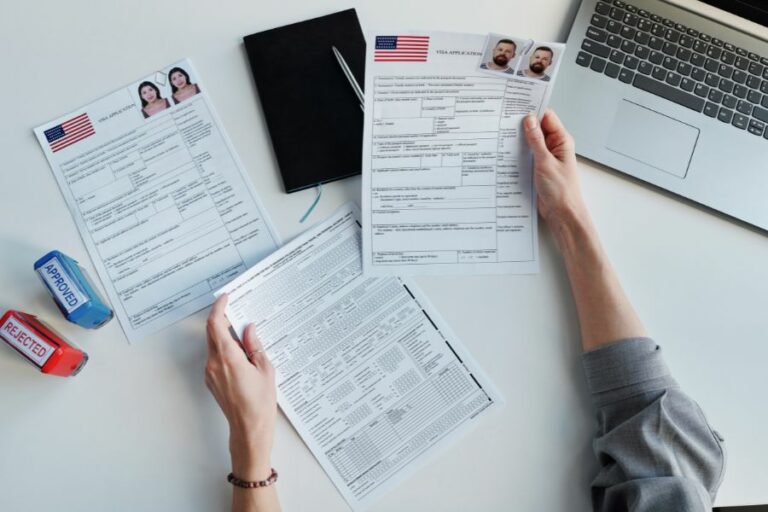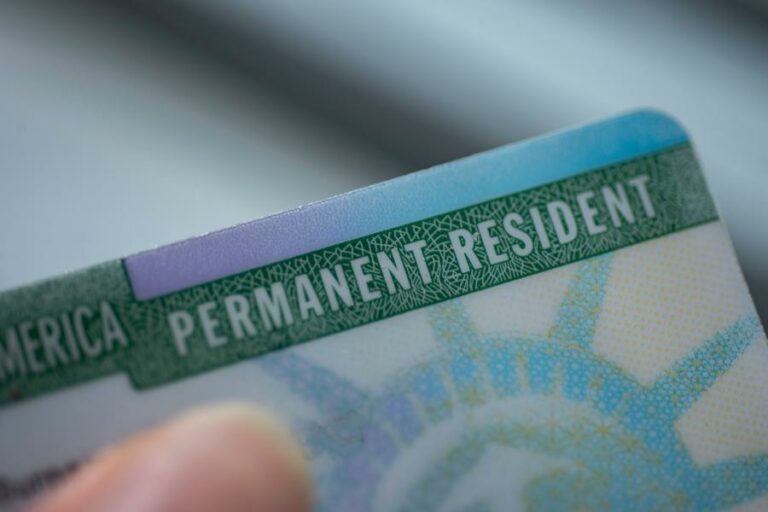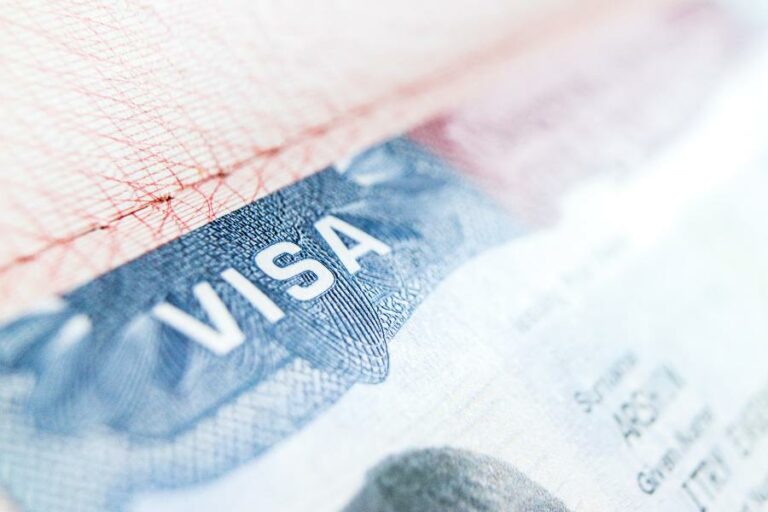VAWA Requirements & Evidence Explained
If you’re looking to escape an abusive situation and you’re connected to a U.S. citizen or Lawful Permanent Resident (LPR), the Violence Against Women Act (VAWA) can be your beacon of hope. It allows you to apply for a green card independently, giving you a chance to find safety and start anew. Let’s walk through the steps and evidence needed to make your application stand out.
Understanding VAWA Visa Requirements & Eligibility
VAWA is there to protect individuals who have experienced abuse by a spouse, parent, or child who is a U.S. citizen or LPR. To see if you qualify for a VAWA visa, consider these points:
- Proof of Abuse: Present evidence of physical harm or extreme mental cruelty from your U.S. citizen or LPR relative.
- Residence: Usually, you’ll need to be living in the U.S. to apply. There are exceptions, like if you’re abroad with a U.S. government job.
- Genuine Marriage: If you’re applying as an abused spouse, show that your marriage was real, not just for a green card.
- Moral Character: Demonstrate good moral character, though USCIS may be somewhat flexible under your circumstances.
- Immigrant Visa Eligibility: You must be eligible for an immigrant visa, a basic requirement for green card applicants.
Filing the USCIS Form I-360 with Necessary VAWA Evidence
The core of your VAWA application is the USCIS Form I-360, also known as the “Petition for Amerasian, Widow(er), or Special Immigrant.” Here’s the evidence you need to compile:
- Personal Declaration: A detailed description of the relationship with the abuser and the abuse suffered.
- Police Clearance Records: Demonstrating the applicant’s good moral character.
- Identification Documents: Provide copies of your passport or birth certificate.
- Proof of Abuser’s Status: Evidence that the abuser is a U.S. citizen or green card holder.
- Proof of Relationship: Documents confirming the relationship with the abuser (spouse, child, or parent).
- Evidence of Co-residence: Documentation showing that the applicant lived with the abuser at some point, as this is a key requirement.
- Evidence of Abuse: Provide solid proof of the abuse you’ve suffered.
- Proof of Current U.S. Residency: Documents showing the applicant’s current residence in the United States.
Detailed Evidence Breakdown
Evidence of Relationship and Authenticity
- Marriage certificates, divorce decrees, or birth certificates.
- Photos, letters, and messages showing the realness of your relationship.
- Joint financial records or insurance policies, proving a shared life.
Proving the Abuser’s Status
- Copies of the abuser’s birth certificate, passport, green card, or naturalization certificate.
- Affidavits or public records, if direct evidence is unavailable.
Documenting the Abuse
- A personal account detailing the abuse.
- Photos, videos, or texts showing physical or emotional harm.
- Police reports, restraining orders, and medical documents.
- Court records, photographs, therapy or counseling records
Demonstrating Co-residence in the U.S.
- Leases, deeds, and utility bills showing a shared residence.
- School or medical documents with matching addresses.
- Joint financial documents.
Evidence of Good Moral Character
- A clean criminal record.
- Recommendations from community or religious figures.
- Recognitions or certificates showcasing your contributions.
Additional Application Tips:
Lesser-known facts
- Confidentiality is Key: One of the most significant aspects of the VAWA process is the confidentiality provision. The abuser is never notified about the VAWA application, which allows victims to seek safety and legal status without fear of retaliation.
- Not Just for Women: Despite its name, VAWA is not exclusively for women. Men and children who are victims of abuse by a U.S. citizen or Lawful Permanent Resident (LPR) can also apply for protection under this act.
- Broad Definition of Abuse: VAWA recognizes a wide range of abusive behaviors beyond physical violence. It includes psychological abuse, rape, incest, and forced prostitution, recognizing the many forms abuse can take.
- Path to Citizenship: An approved VAWA application can eventually lead to naturalization. After obtaining a green card, the individual may apply for U.S. citizenship, opening up further rights and benefits, such as voting in elections and petitioning for relatives’ green cards.
- Legally married: for a VAWA self-petition where the petitioner is the abused spouse, they need to have been legally married to the abuser at some point. This is because one of the eligibility requirements for VAWA as a spouse is to demonstrate that the marriage to the abusive U.S. citizen or Lawful Permanent Resident (LPR) was entered into in good faith.
- Intended Marriages Included: The law accounts for intended marriages where the marriage to the abusive U.S. citizen or LPR was entered in good faith but could not be legally completed due to the abuser’s prior marriage.
- Provisions for Divorced Applicants: An individual can apply for VAWA post-divorce if the marriage to the abuser ended due to abuse or battery, as long as the application is filed within two years of the divorce.
- Same-sex marriage: the Violence Against Women Act (VAWA) applies to same-sex marriages. As long as the marriage is legally recognized by the place where it was performed, same-sex couples are eligible for VAWA just like opposite-sex couples.
- Self-Petitioning Rights: VAWA allows certain victims of domestic violence to self-petition for legal status without the knowledge or consent of their abuser. This is a departure from typical immigration applications that require sponsorship from a U.S. relative or employer.
- Eligibility for Work Authorization: Applicants may apply for a work permit while their VAWA application is pending, enabling them to work legally in the U.S. and support themselves financially during the process.
- Same-sex marriage: the Violence Against Women Act (VAWA) applies to same-sex marriages. As long as the marriage is legally recognized by the place where it was performed, same-sex couples are eligible for VAWA just like opposite-sex couples.
Collecting all this evidence can feel like a mountain to climb, but remember, each document, each photo, each piece of your story adds up to a full, truthful image of what you’ve endured. It’s all about laying out the truth of your situation clearly to the authorities. Keep your focus on the sense of security and the fresh start that awaits you on the other side of this journey.
Questions about VAWA from Real People
Can I stay with my partner when filing for VAWA?
What is considered abuse for VAWA?
How long does it take to get green card after 360 (VAWA) approval?
Related: Green Card Processing Times By Type
References:
- https://www.uscis.gov/policy-manual/volume-3-part-d-chapter-2
- https://www.uscis.gov/forms/filing-guidance/checklist-of-required-initial-evidence-for-form-i-360-for-informational-purposes-only
- https://www.uscis.gov/humanitarian/abused-spouses-children-and-parents
- https://www.uscis.gov/green-card/green-card-eligibility/green-card-for-vawa-self-petitioner
